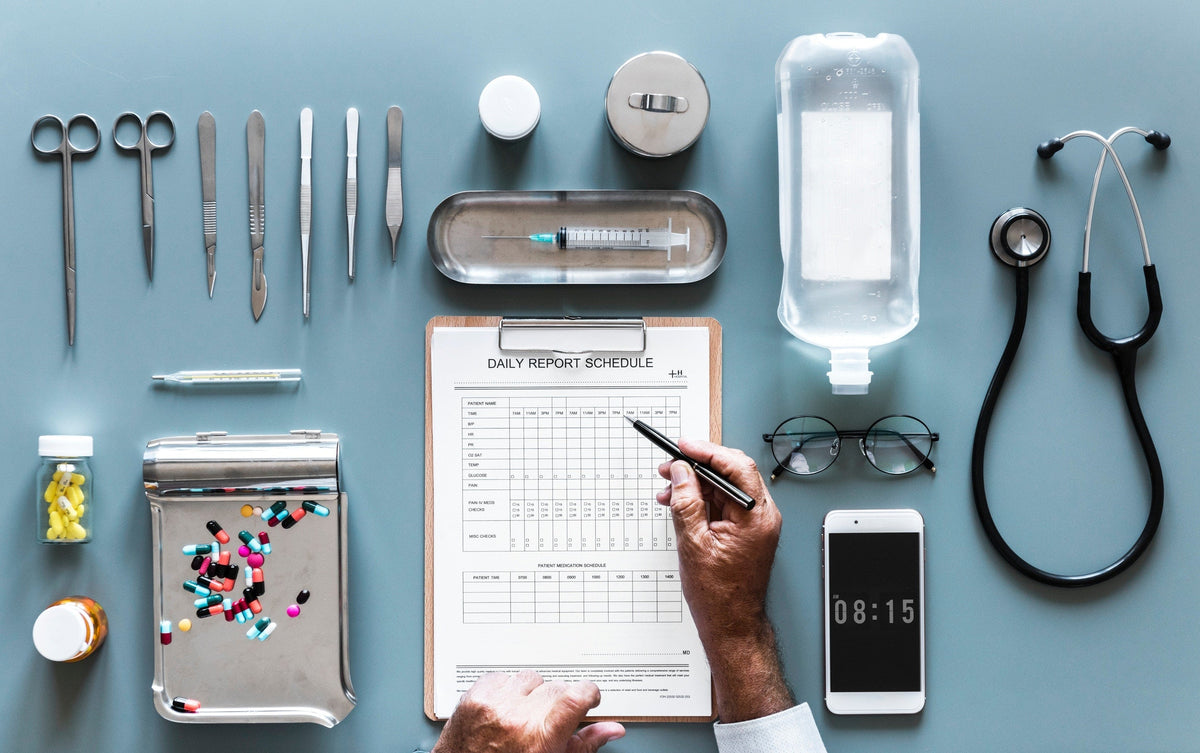
What to Expect During Your First Visit to a Sleep Clinic
|
Time to read 4 min
This store requires javascript to be enabled for some features to work correctly.
Written by: Dr Alanna Hare
|
Time to read 4 min
For most of us, sleep problems are short-lived and, whilst frustrating and exhausting when they occur, can often quickly be put right by careful attention to our sleep environment, relaxation and winding down, and a regular sleep/wake schedule.
However, for a proportion of us, difficulties with sleep endure despite this and for some, concerns about possible underlying sleep pathology such as sleep apnoea, restless legs or unusual behaviours in sleep such as nightmares or sleep walking (parasomnias), mean that a specialist sleep assessment is required.
But what happens in the sleep clinic? Whether you are referred by your GP, or seek an independent opinion in the private sector, your first appointment with a sleep specialist can feel daunting, but this meeting is designed to enable the specialist to understand your sleep and what troubles it, and to ensure any further assessments are appropriate for you and your concerns.
In the first appointment, the specialist will ask detailed questions about your sleep: what time you go to bed; how long it takes you to fall asleep; how many times you wake in the night; what time you wake for the day and how you feel on waking. The clinician will also ask about the impact of your sleep problem on your daytime: how sleepy you are; whether you take naps in the day; the impact on your work and relationships.
There will also be questions designed to determine whether you might have sleep apnoea, leg movements disturbing sleep (restless legs syndrome, or limb movements in sleep), a parasomnia (unusual behaviours in sleep), hypersomnia (an increased need for sleep) or another form of sleep pathology.
Sometimes you will be asked to complete a sleep diary before being seen. This involves recording your sleep patterns for a two week period, so that the clinician can understand your sleep in more detail. You may also be asked to complete some questionnaires about your sleep quality, how sleepy you are, and how much sleep you feel you need.
Once these initial assessments have been completed, the clinician will decide whether any special tests are required. A sleep study may be necessary. These can sometimes be undertaken in your own home, although more detailed assessments of your sleep may require an overnight stay in a sleep laboratory.
Sleep studies are designed to determine what happens during your sleep and can assess for the presence of snoring, sleep apnoea, limb movements in sleep and/or parasomnias. They are painless and non-invasive and involve wearing monitoring equipment attached to various points on your body during your sleep. These monitor things like your heart rate, oxygen level s and breathing during sleep. Sometimes video monitoring of your sleep may be required.
The equipment is designed to be as comfortable as possible and most people sleep fine during a sleep study, but even if you do not sleep quite as well as you would normally, this should not affect the results. If you are asked to stay in a sleep laboratory, you will usually come to the sleep centre during the early evening, and will have your own room, designed to enable you to have a good night’s sleep. You will be encouraged to bring in anything which usually helps you sleep, and wear your own sleepwear. The results are sometimes available the very next morning, but for more detailed sleep assessments, you will be invited back to clinic to discuss the findings with your specialist. On this visit, you will be able to discuss the results of all your assessments with the sleep specialist, and an individualised treatment programme will be developed to help improve your sleep.
Seeing a sleep specialist is the best way to understand your sleep and what may be preventing you sleeping well. A sleep specialist can help give you the tools to develop healthy sleep for life, enabling you to wake refreshed, energised and positive.
During your initial consultation, the sleep specialist will gather detailed information about your sleep patterns. They will ask about your bedtime, how long it takes you to fall asleep, how often you wake during the night, and what time you wake up in the morning. The discussion will also include how your sleep affects your daytime activities, such as work, relationships, and overall energy levels. Additionally, the specialist may explore potential sleep disorders like sleep apnoea, restless legs syndrome, or parasomnias to better understand your concerns.
Before your visit, you might be asked to keep a two-week sleep diary to track your sleeping habits. This diary helps provide insight into your routine and patterns. You may also complete questionnaires evaluating your sleep quality, daytime sleepiness, and overall restfulness. Depending on the findings, the specialist may suggest a sleep study. These studies are conducted either at home or in a sleep lab and assess aspects like breathing, oxygen levels, and heart rate during sleep.
Sleep studies are designed to monitor and evaluate your sleep in detail. They are non-invasive and involve wearing monitoring equipment to track vital metrics such as heart rate, oxygen levels, and breathing patterns. If conducted in a sleep laboratory, you will have a private, comfortable room to help you sleep naturally. You are encouraged to bring personal sleep aids and wear your own sleepwear. Following the study, results are typically reviewed by a specialist who will create a customized treatment plan to address your sleep issues.
The Myza Editorial Team
Read moreReceive 10% off your first order when you subscribe to our newsletter





